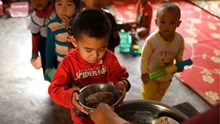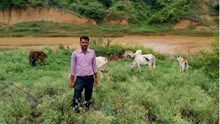
The Islamic Development Bank (IsDB) agreed to lend the Cameroonian government US$84.6 million during its 47th annual meeting in Sharm El Sheikd to support rice production and finance new road transport, health, water and sanitation, and food security projects in four member countries: Guinea Bissau, Togo, Benin, and Cameroon.
The overall goal of the project, according to the IsDB, is to improve rice self-sufficiency, economic growth, and household incomes through improved production, processing, marketing, and support for private sector participation in the agricultural (rice) value chain.
The objectives will be met through the development of 5,000ha of land, road rehabilitation, market construction, storage facility construction, the establishment of rice processing units, farmer and other stakeholder capacity building, and access to finance.
This would result in an increase in rice productivity from 4.5 to 6 tonnes per acre, a 10% increase in national rice production, the creation of 210,000 jobs, and a reduction in post-harvest losses.
Cameroonian Economy Minister Alamine Ousmane Mey, who was also present at the meeting, stated that with this initiative, the government hopes to increase local rice production while significantly reducing imports.
Rice is a major food product imported into Cameroon. According to the National Institute of Statistics (INS), rice alone accounted for 5% of Cameroon's total imports in the first half of 2021, totaling US$ 2.9 billion for 5.07 million tonnes of goods.
To meet rising demand, authorities intend to purchase 400,000 tonnes of rice this year, despite rising global market prices.
According to reliable sources, these imports will be free of customs duties and other port charges, which means that, in addition to depleting the country's foreign exchange reserves and widening the trade deficit, the announced rice imports will not generate direct tax and customs revenues for the government.
Furthermore, rice imports to the domestic market are frequently re-exported to neighbouring countries via smuggling. According to the INS, rice worth US$138.6 million was smuggled into Cameroonian neighbouring countries in 2019.
















